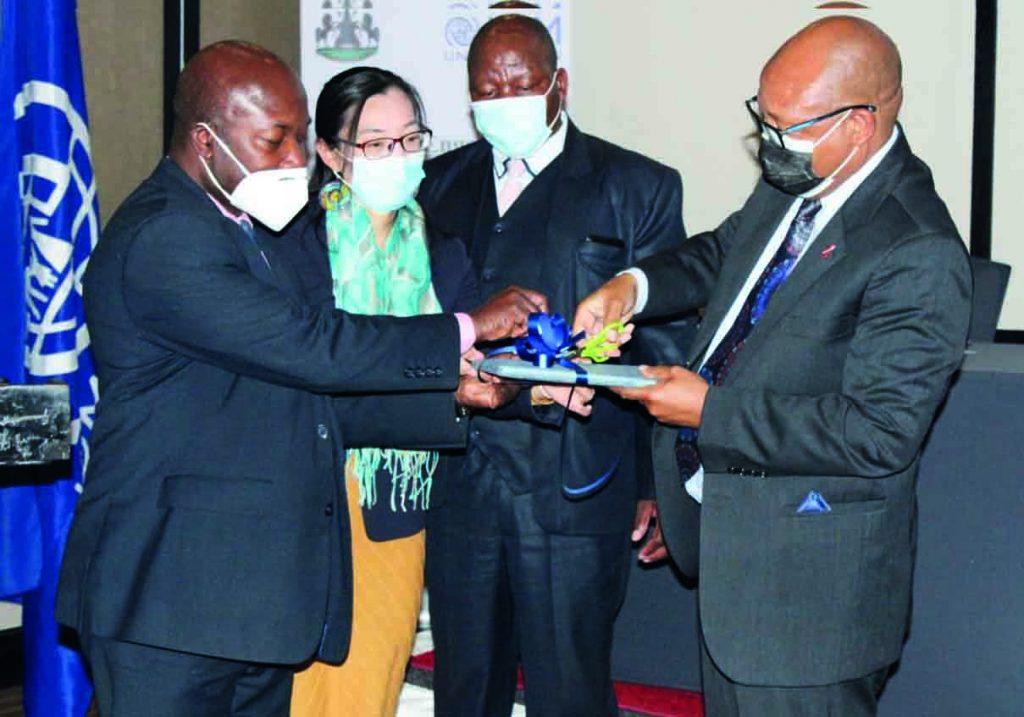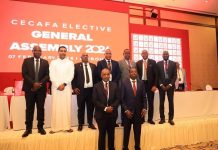Africa-Press – Lesotho. EACH year, 77-year-old Julie Mopeli from Teya-Teyaneng looks forward to December with glee. This is when her two daughters and grandchildren working in South Africa usually return home to visit, although they sometimes pop up in-between the months.
The December visits give them an opportunity to catch up and share personal stories. In terms of provisions, Mopeli is hardly found wanting. Every month, on top of the old-age pension she receives from the government, her daughters send her some money to buy daily necessities.
They have also hired a nanny, who is also their relative, to take care of her. “The eldest of my daughters is a government employee in Cape Town where she is married and is raising children,” Mopeli said proudly.
“Her sister is working at a company in Gauteng and every time she comes to Lesotho to see her own family in Mapoteng, she also comes here to see me,” said the proud granny.
“They understand the words in the Bible that say ‘honour your father and mother so that your days may multiply in the land the Lord your God has given you’.
” The widowed Mopeli is a former domestic worker in South Africa so she knows the drill.
“My daughters were staying with my sister here in Lesotho when I was working in Gauteng for over 30 years. I was sending money home every month, coming only during holidays to see them,” she said. Mopeli’s experience is not isolated.
With Lesotho’s economy faltering, the diaspora has become a key pillar of support for many Basotho who rely on remittances sent by relatives abroad to survive the harsh times.
The April 2020 World Bank paper titled ‘Covid-19 Crisis Through a Migration Lens – Migration and Development Brief 32’ ranks Lesotho number two after South Sudan among countries that benefit more from remittances.
Lesotho gets 21.3 percent of GDP from remittances while South Sudan got 34.4 percent. Prime Minister Moeketsi Majoro last week launched the National Diaspora Policy through the Foreign Affairs Ministry, in collaboration with the International Organisation for Migration (IOM).
Dr Majoro said the role of the diaspora has transcended in recent years from merely sending remittances to investing in businesses and philanthropic development projects and sharing specialised skills and tourism promotion.
“Remittances have been pivotal and played a cardinal role in building our economy, at one point accounting to 25.8 percent of the GDP,” Dr Majoro said.
He added that “although it stands at around 14.7 today, Lesotho remains one of the top countries which are dependent on this source of foreign earning”.
Dr Majoro said although Lesotho diaspora has enormously contributed to the country’s wellbeing “the full potential hasn’t been exploited due to an inaccurate database of citizens abroad, lack of coordination, inadequate institutional capacity and clear engagement policy between the government and diaspora community”.
“This policy is a first step to addressing these obstacles,” he said.
He said in order to achieve the policy goals, the government will establish an institutional framework known as the Diaspora Directorate to serve as a coordination mechanism.
He said the vision is to “ensure that diaspora is viewed as an integral part to the development of the country by enhancing effectiveness of its contribution to the development of Lesotho. Diaspora should feel recognised by the government”.
He said the policy further seeks to empower both the successful and vulnerable members and provide a directorate that can facilitate a committed engagement of the diaspora to develop the country.
Foreign Affairs Minister Matšepo Ramakoae said the ministry approached the IOM for support in 2018 and they responded positively. “It has indeed brought positive results and I am very proud,” Ramakoae said. She said Lesotho will need more support from the IOM considering several challenges the country is facing.
“We will continue to count on IOM and other stakeholders for support for the implementation of this policy,” she said, adding that the government will also approach other role players to avoid working in silos.
The newly formed Basotho Diaspora Association, represented by international coordinator, ’Matumelo Halieo Lelosa, was introduced at the launch of the policy. She said the journey to finding each other in the diaspora has been fascinating.
“It has truly been like wild fire that ignited interest into these flag bearers of Lesotho in countries we did not even know a Mosotho would be found,” Lelosa said. She said Basotho diaspora have been located in five out of seven continents in 41 countries.
She said the journey to becoming a formalised association was a difficult one, but expressed happiness after being informed by IOM Lesotho that they were the first Diaspora Association to be formalised in the Southern African region.
“It was sheer resilience and determination from all Basotho in the diaspora, especially those who volunteered to donate their time, talent and treasure to the formalisation process,” Ramakoae said. She said they received training from diaspora experts on how to be an effective diaspora association.
“That training opened our eyes and moved us from unconscious incompetence where we didn’t know that we didn’t know to the place where we were comfortably knowledgeable about the area of diaspora engagement,” said Ramakoae.
She said the IOM has and continues to play a vital role in ensuring that “our diaspora engagement not only becomes a success but re-engineers the perception that defined us for a long time that we were the brain drain to the more desirable one of being seen as the brain gain.
”
She attributed the delay in establishing a formal association to what she described as “an event-based approach which we adopted for almost 10 years. ”
“There would be such hype when ministers visited us in South Africa.
After the event, the oxygen would slowly dissipate, leaving us lifeless until the next dosage of the high level visitation from our government officials,” said Ramakoae.
“So when Covid-19 happened we connected digitally, giving birth to a truly global diaspora association. This inclusive new normal opened possibilities we did not know existed,” she said.
IOM regional director Charles Kwenin said the organisation was proud to be associated with the launch of the policy as well as the establishment of the diaspora association.
He said key milestones to note include the Diaspora Directorate in the Foreign Affairs strategic plan and normalisation of Basotho diaspora members from over 20 countries through the Basotho Diaspora Association.
“These are commendable achievements as they have set a firm foundation towards regular, effective and open communication and dialogue between Lesotho and Basotho diaspora going forward,” said Kwenin.
“This will act as a precedent that other SADC and IOM member states will follow in future,” he said.
“Migrants bring new and sometimes scarce skills, innovative ideas and energy to their new countries, which often are challenged by demographics in the labour market,” said Kwenin.
For More News And Analysis About Lesotho Follow Africa-Press






